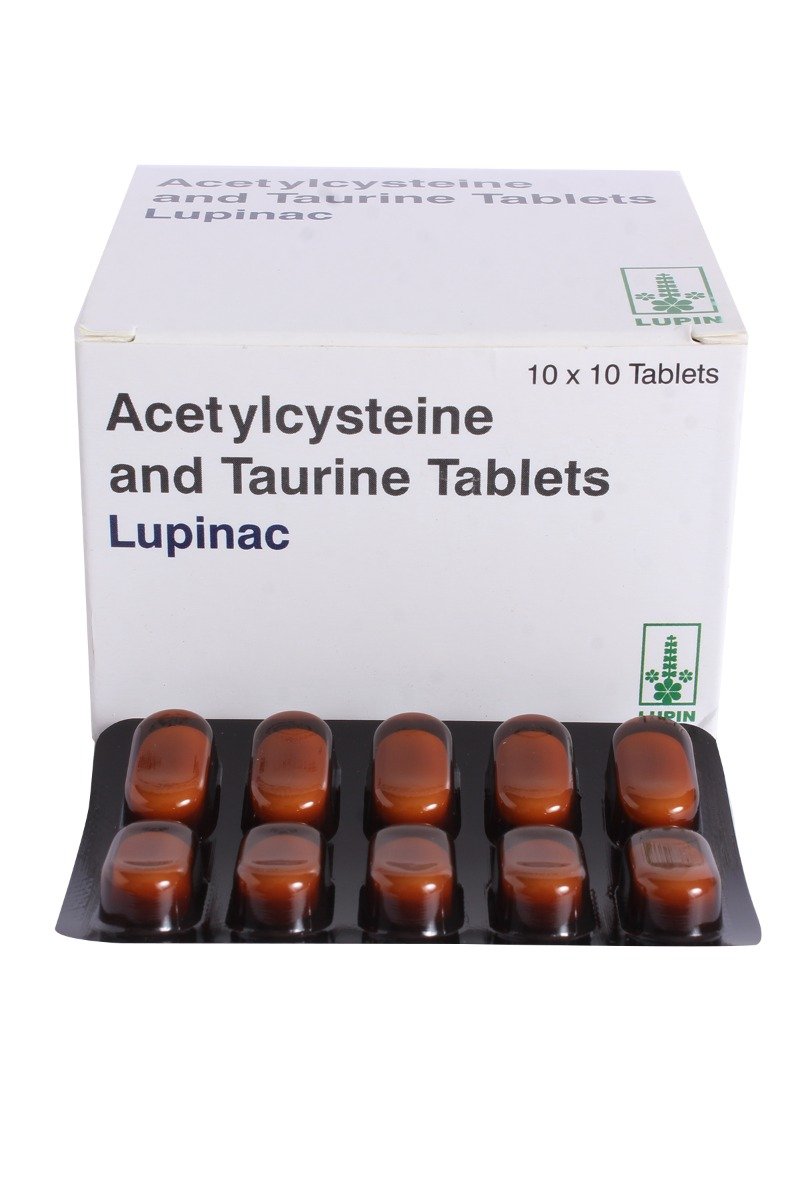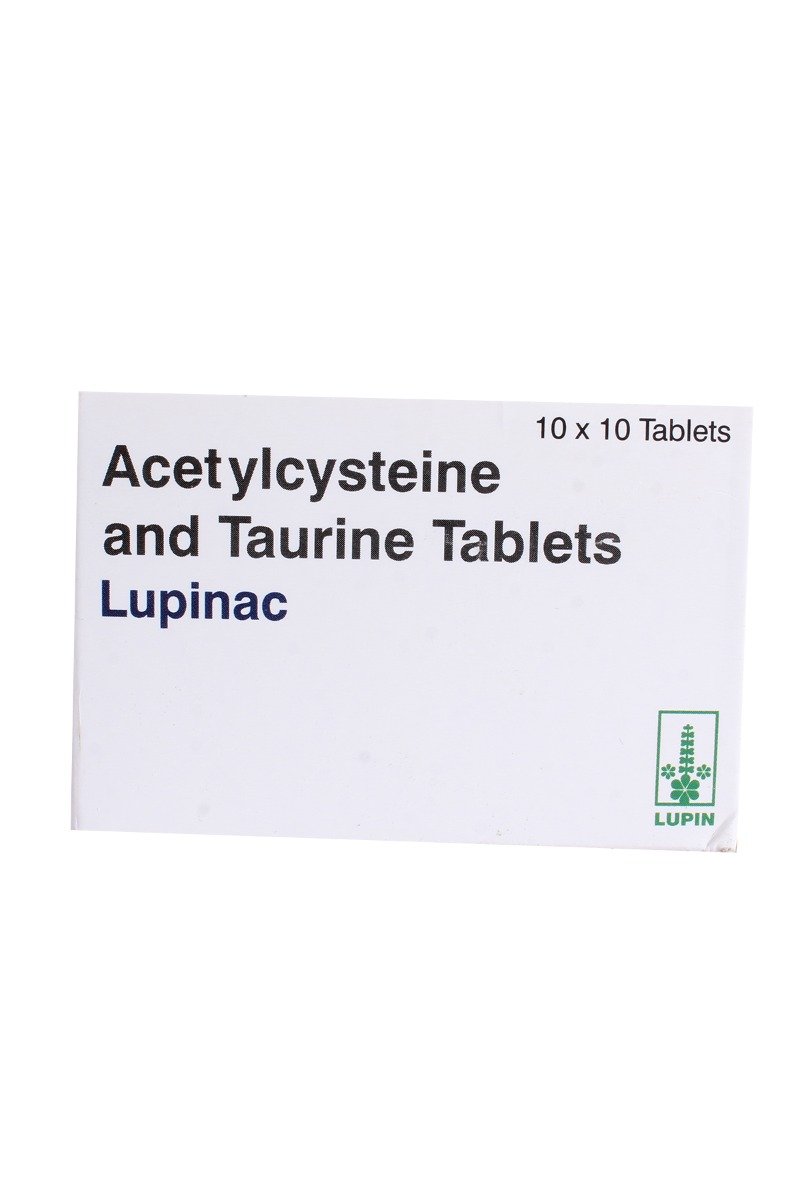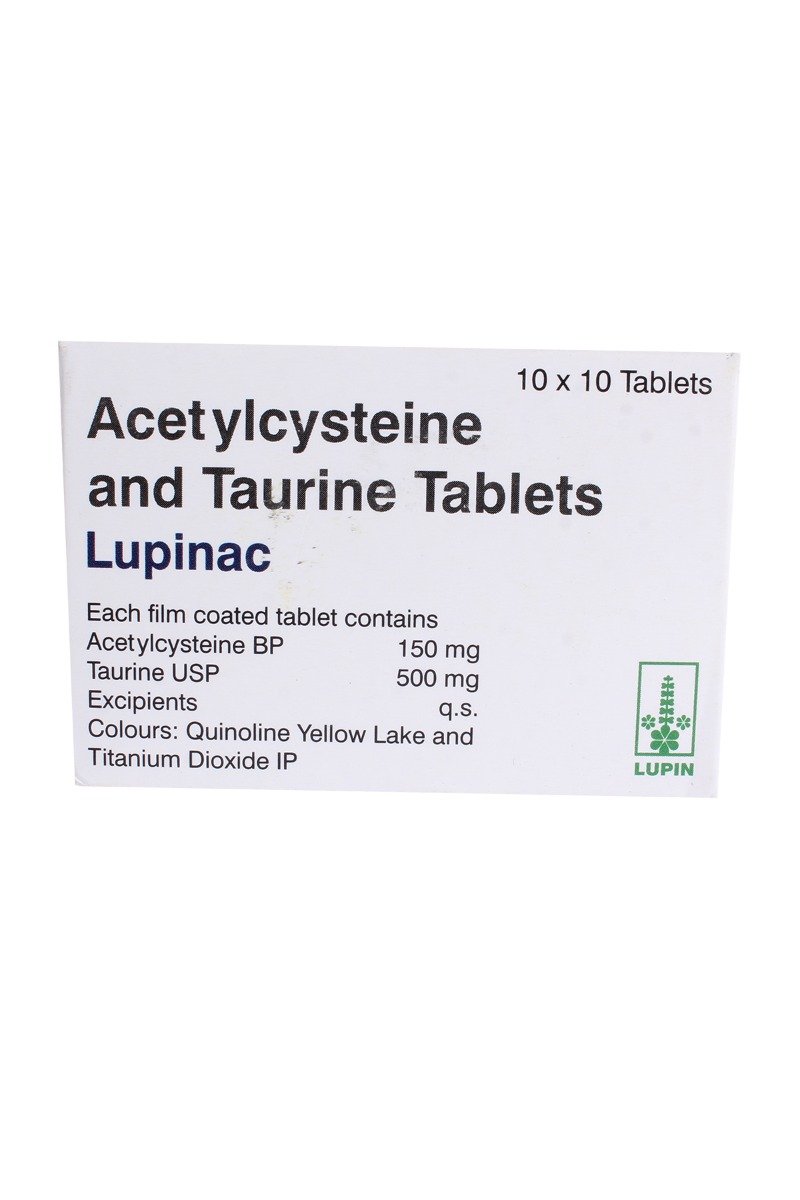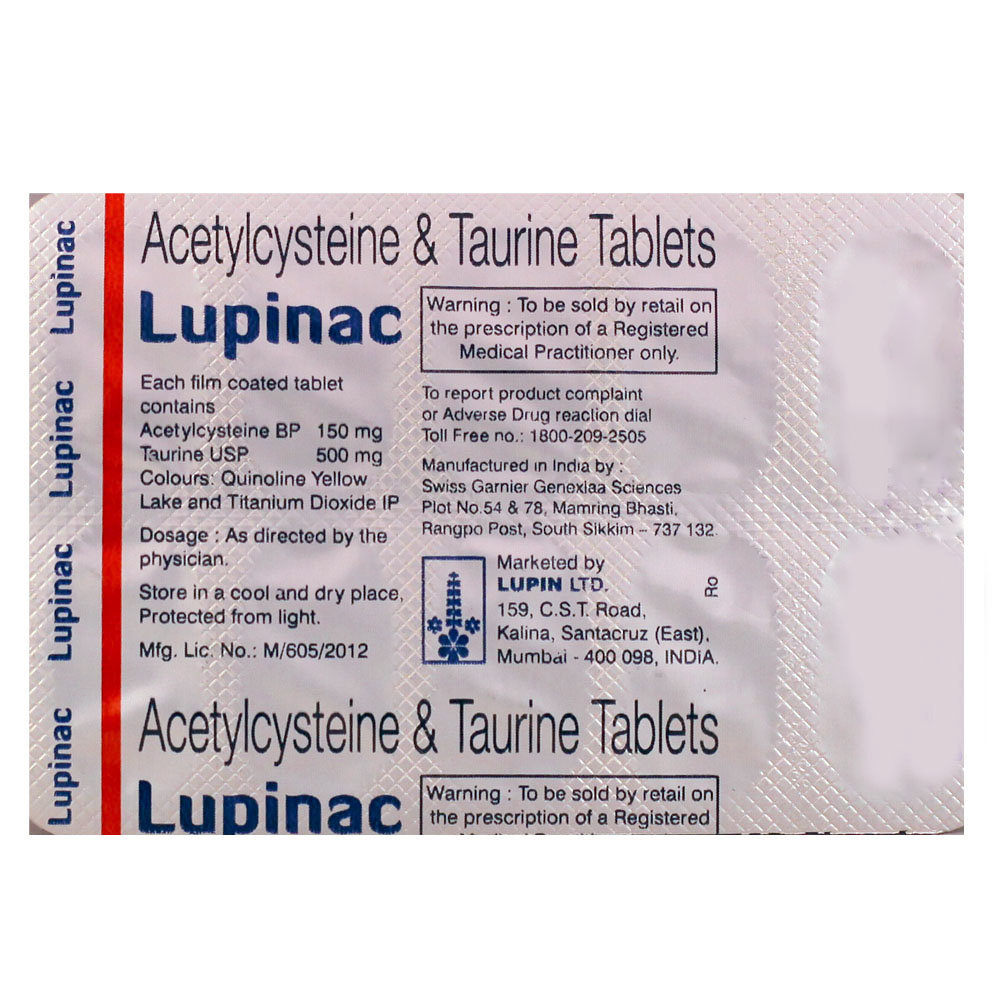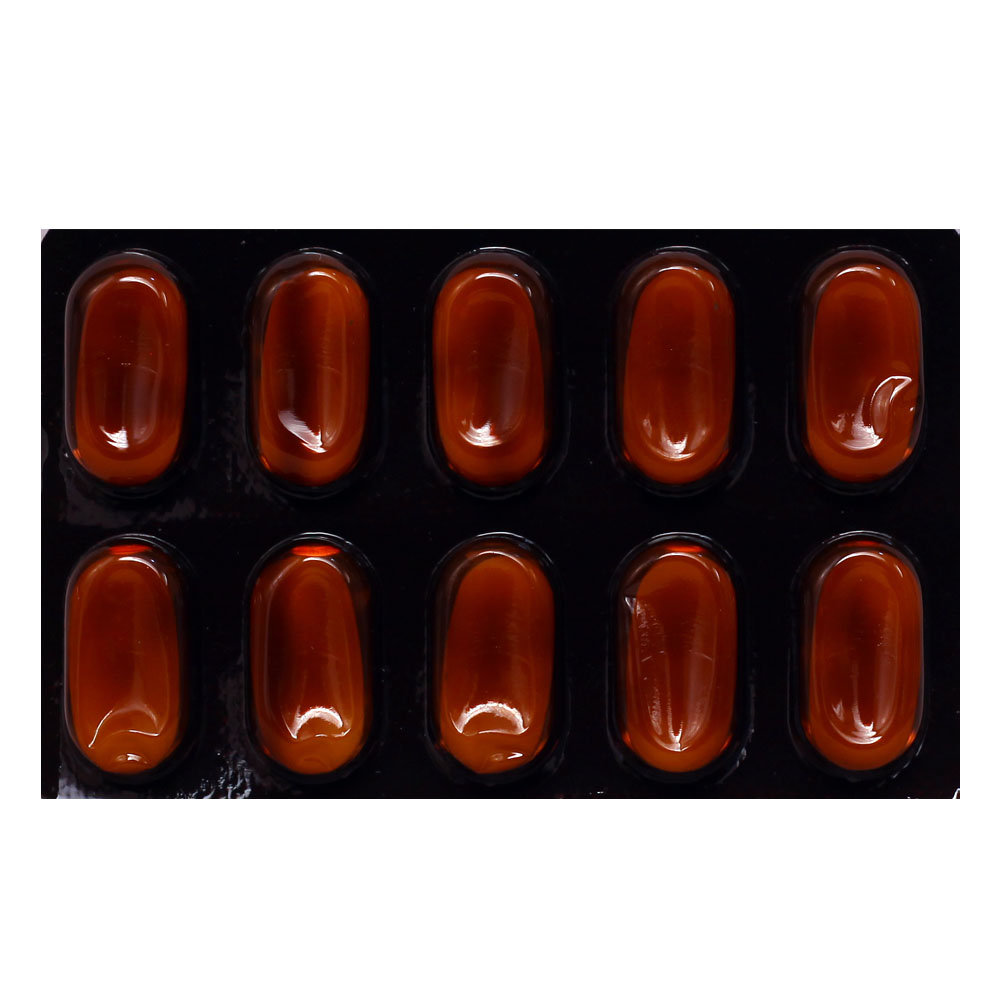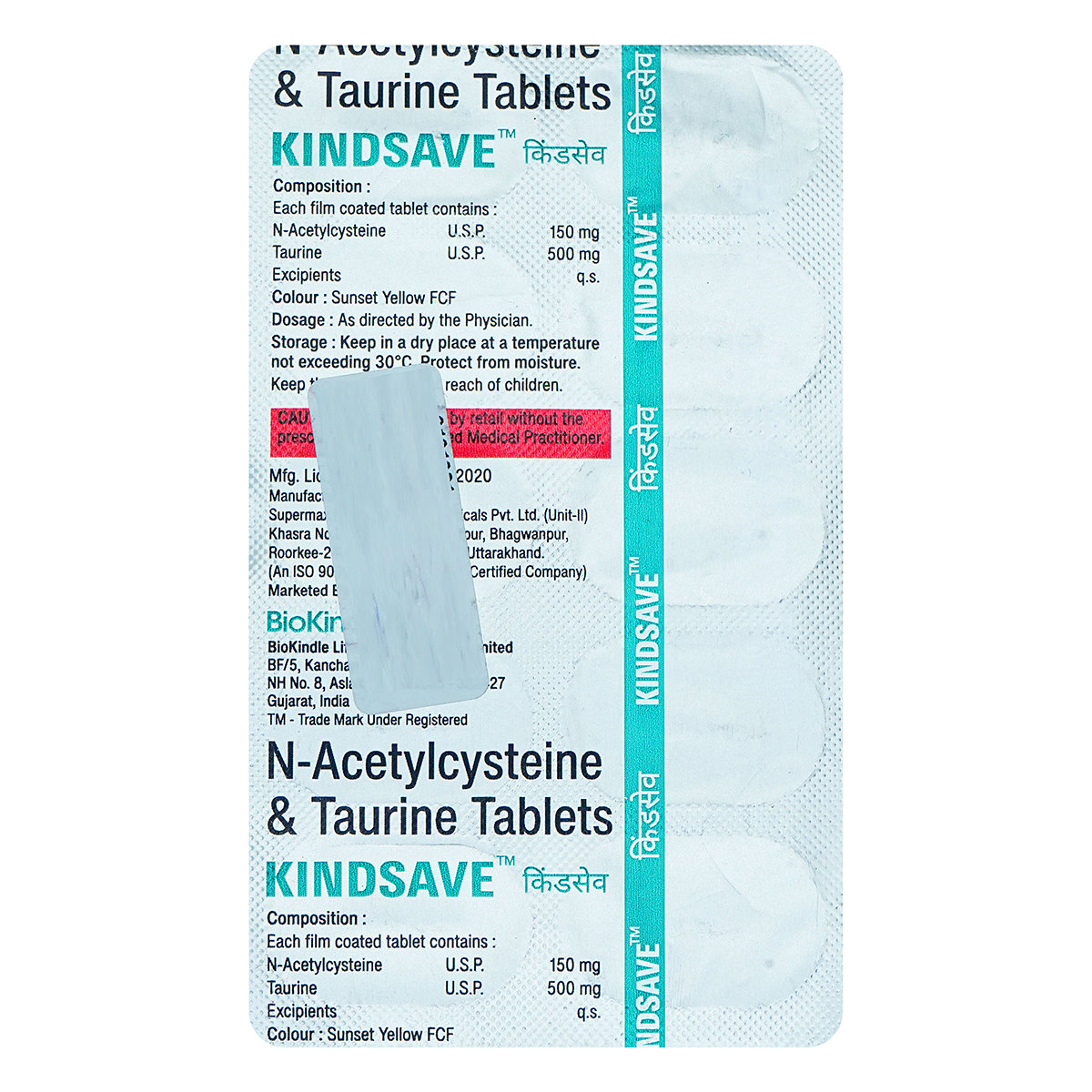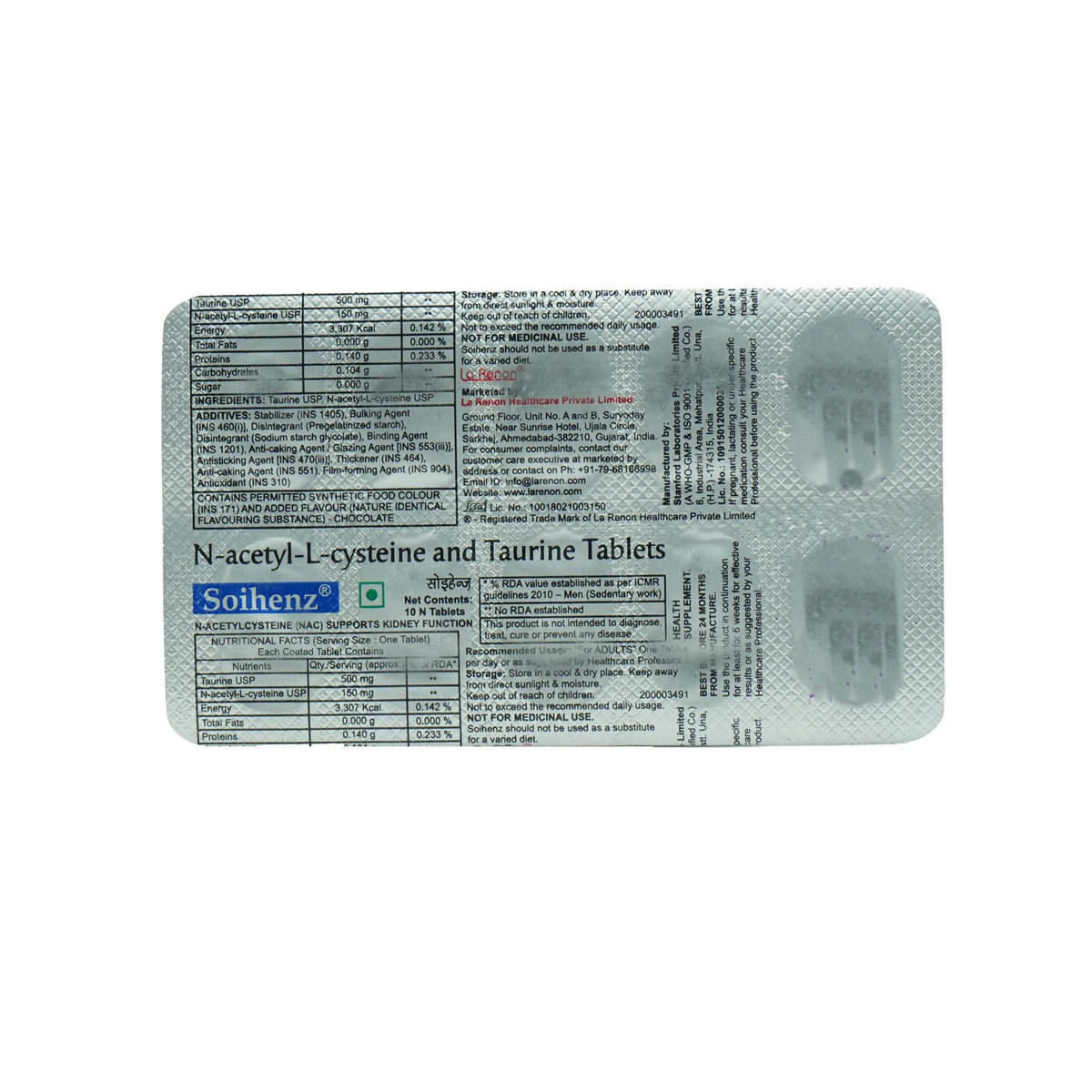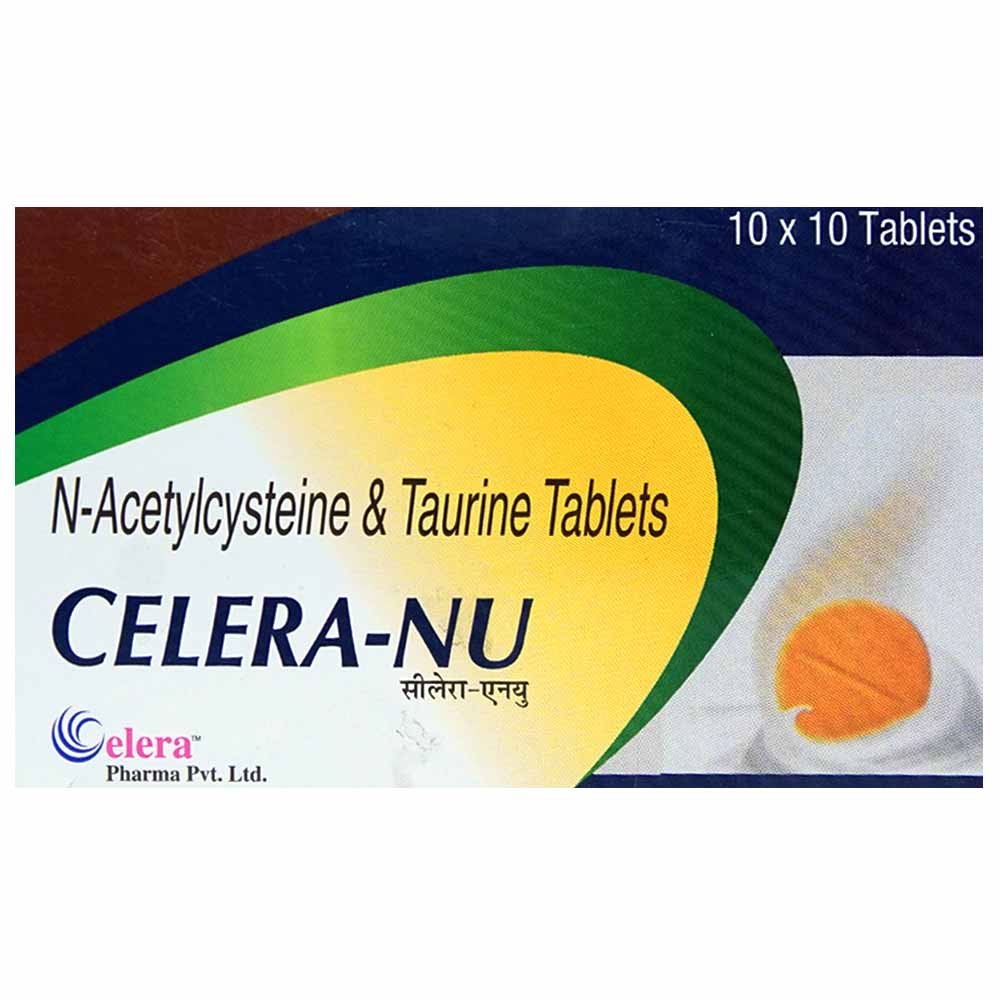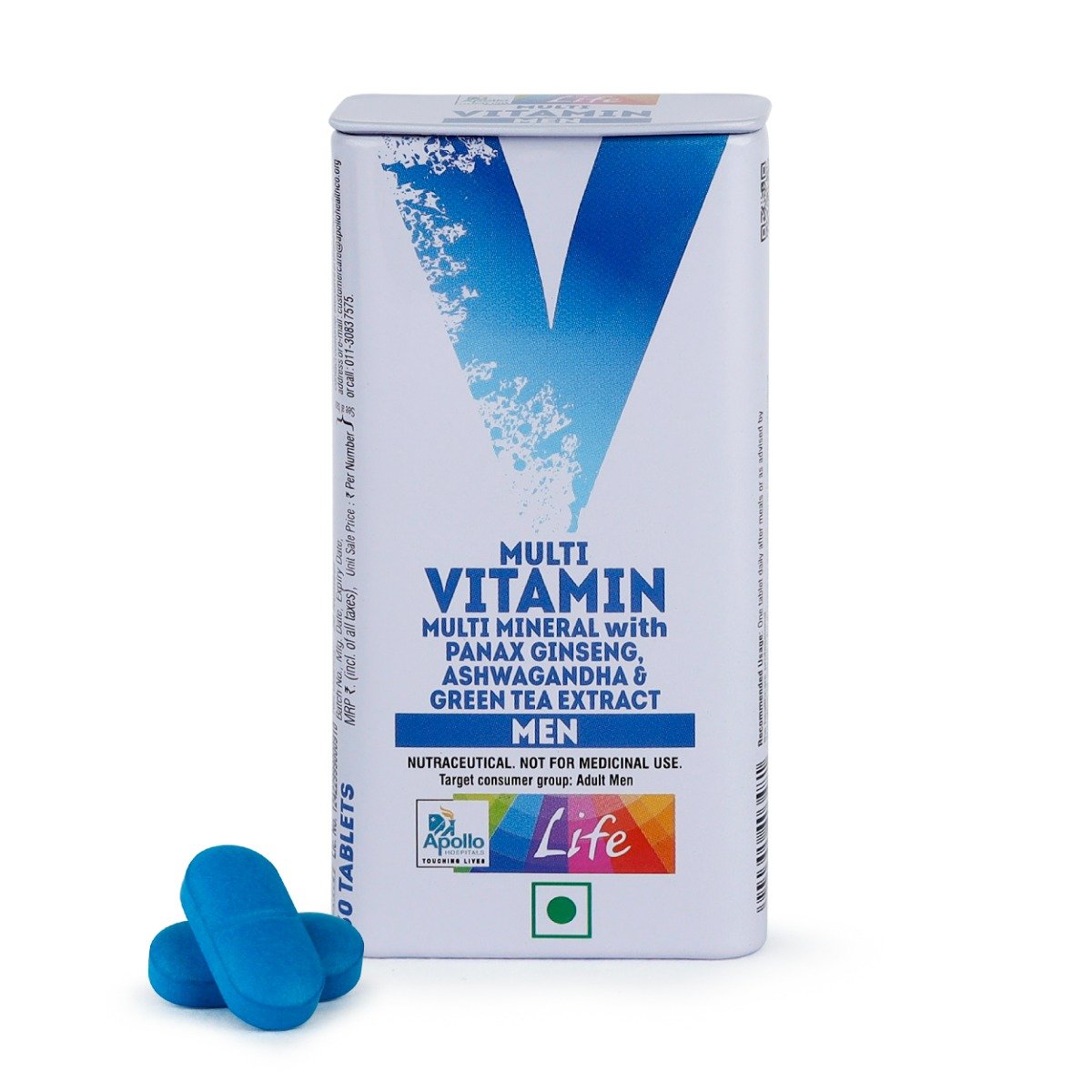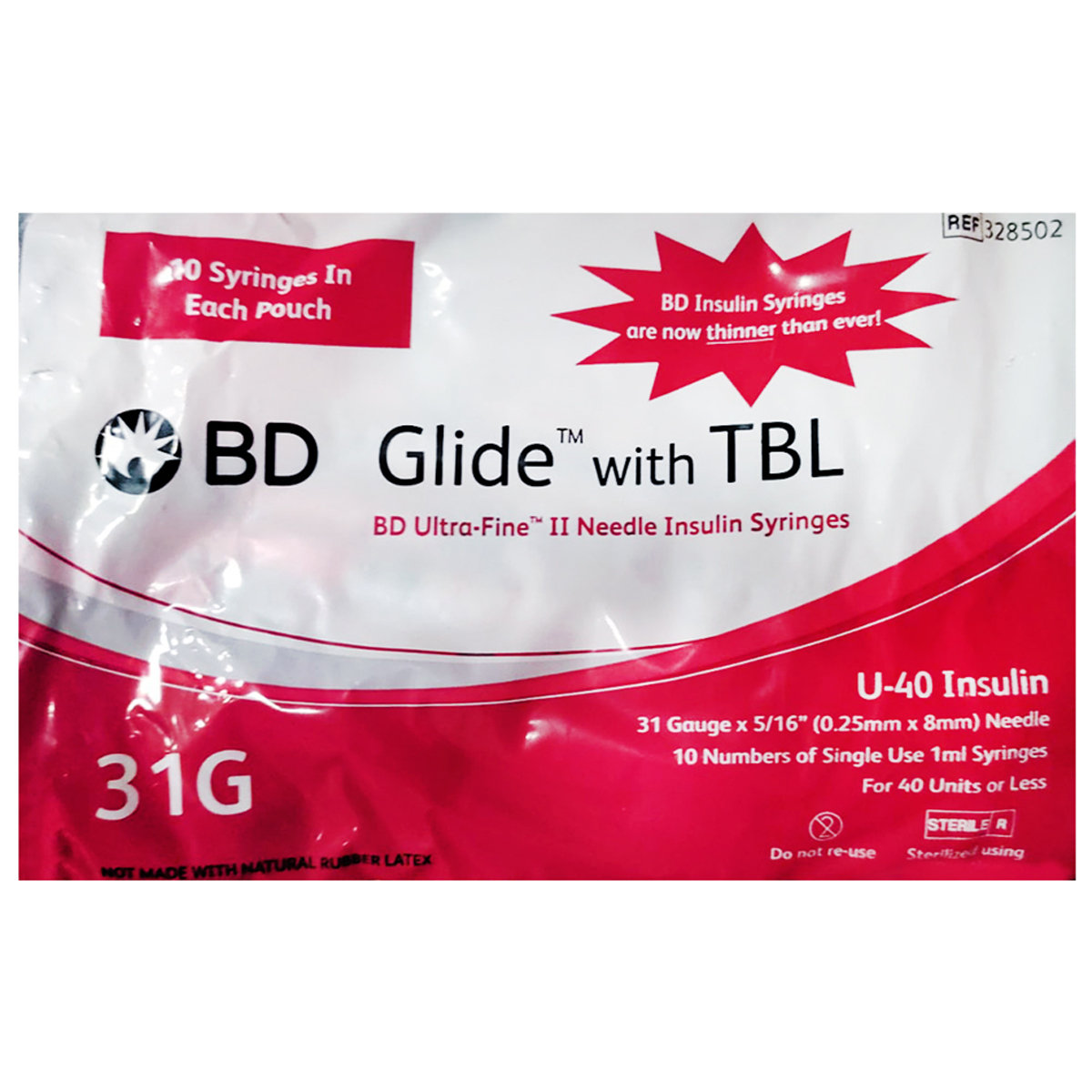Lupinac Tablet 10's
MRP ₹202
(Inclusive of all Taxes)
₹30.3 Cashback (15%)
Know Your Delivery Time
Provide Delivery Location

Secure Payment

India's Most Trusted Pharmacy

Genuine Products
Composition :
Manufacturer/Marketer :
Consume Type :
Return Policy :
Expires on or after :
About Lupinac Tablet
Lupinac Tablet used in the treatment of diabetic nephropathy (diabetic kidney disease). Diabetic nephropathy is kidney damage resulting from diabetes. It is a major cause of kidney failure.
Lupinac Tablet contains Taurine and Acetylcysteine. Taurine helps control disease progression in diabetic kidney disease. Acetylcysteine reduces the production of free radicals that cause tissue damage. Together, Lupinac Tablet helps treat diabetic kidney disease.
The common side effects of Lupinac Tablet are nausea, vomiting, and rash. These side effects are mild and temporary. However, consult your doctor if any of these side effects persist or worsen.
Do not take Lupinac Tablet if you are allergic to Taurine, Acetylcysteine, or any other contents present in it. Consult your doctor if you are pregnant or breastfeeding. Keep your doctor informed about your health condition and medications to prevent any potential interactions.
Uses of Lupinac Tablet
Lupinac Tablet is used in the treatment of diabetic nephropathy. The detailed uses of Lupinac Tablet are as follows:
- Diabetic nephropathy: Lupinac Tablet contains antioxidants like Taurine and Acetylcysteine, which reduce oxidative stress and protect kidney cells from damage caused by high blood sugar levels.
- Kidney Health Support: Lupinac Tablet promotes kidney function and overall renal health, especially in individuals susceptible to kidney-related conditions.
- Antioxidant Properties: Lupinac Tablet offers antioxidant benefits, reducing oxidative stress in the kidneys to minimise damage and enhance kidney well-being.

Have a query?
Directions for Use
- Take Lupinac Tablet with or without food or as advised by a doctor.
- Follow your doctor's instructions on the dosage and timing of this medication to ensure safety.
- Swallow the medicine as a whole with a glass of water.
- Do not crush, break, or chew it.
Medicinal Benefits
- Lupinac Tablet is a combination of Taurine and Acetylcysteine, two powerful antioxidants that work together to protect and support kidney health, particularly in patients with diabetic nephropathy (kidney damage due to diabetes).
- It slows the progression of diabetic nephropathy and helps protect kidney tissues from further damage caused by high blood sugar levels and oxidative stress.
- Its powerful antioxidant action neutralises harmful free radicals, reducing oxidative stress in the kidneys and other tissues.
- Acetylcysteine possesses anti-inflammatory properties, which help in minimising kidney inflammation and improving overall function.
- Taurine helps regulate blood glucose levels, contributing to better management of diabetes-related complications.
How Lupinac Tablet Works
Storage
- Inform your doctor about the nausea and discuss possible alternatives to the medication or adjustments to the dosage.
- Divide your daily food intake into smaller, more frequent meals to reduce nausea.
- Opt for bland, easily digestible foods like crackers, toast, plain rice, bananas, and applesauce.
- Avoid certain foods that can trigger nausea, such as fatty, greasy, spicy, and smelly foods.
- Drink plenty of fluids, such as water, clear broth, or electrolyte-rich beverages like coconut water or sports drinks.
- Use ginger (tea, ale, or candies) to help relieve nausea.
- Get adequate rest and also avoid strenuous activities that can worsen nausea.
- Talk to your doctor about taking anti-nausea medication if your nausea is severe.
- Record when your nausea occurs, what triggers it, and what provides relief to help you identify patterns and manage your symptoms more effectively.
- Preventing Vomiting (Before it Happens)
- Take medication exactly as prescribed by your doctor. This can help minimize side effects, including vomiting.
- Having a small meal before taking your medication can help reduce nausea and vomiting.
- Talk to your doctor about taking anti-nausea medication along with your prescribed medication.
- Managing Vomiting (If it Happens)
- Try taking ginger in the form of tea, ale, or candy to help alleviate nausea and vomiting.
- What to Do if Vomiting Persists
- Consult your doctor if vomiting continues or worsens, consult the doctor for guidance on adjusting your medication or additional treatment.
- Inform your doctor immediately if you experience a fever after starting a new medication.
- Your doctor may adjust your medication regimen or dosage as needed to minimize fever symptoms.
- Monitor your body temperature to monitor fever progression.
- Drink plenty of fluids, such as water or electrolyte-rich beverages, to help your body regulate temperature.
- Get plenty of rest and engage in relaxation techniques, such as deep breathing or meditation, to help manage fever symptoms.
- Under the guidance of your doctor, consider taking medication, such as acetaminophen or ibuprofen, to help reduce fever.
- If your fever is extremely high (over 103°F), or if you experience severe symptoms such as confusion, seizures, or difficulty breathing, seek immediate medical attention.
- To help reduce symptoms, eat foods high in vitamin C, such as oranges, bell peppers and strawberries.
- Lightly blow your nose to remove mucus; steer clear of blowing hard.
- Infections can be prevented from spreading by washing hands frequently and staying away from other people.
- If you have allergies, do your best to avoid triggering allergens that could contribute to a runny nose.
- Don't smoke, as irritating the nasal passages can make a runny nose worse.
- Inform Your Doctor: Notify your doctor immediately about your diarrhoea symptoms. This allows them to adjust your medication or provide guidance on managing side effects.
- Stay Hydrated: Drink plenty of fluids to replace lost water and electrolytes. Choose water, clear broth, and electrolyte-rich drinks. Avoid carbonated or caffeinated beverages to effectively rehydrate your body.
- Follow a Bland Diet: Eat easy-to-digest foods to help firm up your stool and settle your stomach. Try incorporating bananas, rice, applesauce, toast, plain crackers, and boiled vegetables into your diet.
- Avoid Trigger Foods: Steer clear of foods that can worsen diarrhoea, such as spicy, fatty, or greasy foods, high-fibre foods, and dairy products (especially if you're lactose intolerant).
- Practice Good Hygiene: Maintain good hygiene to prevent the spread of infection. To stay healthy, wash your hands frequently, clean and disinfect surfaces regularly, and avoid exchanging personal belongings with others.
- Take Anti-Diarrheal Medications: If your doctor advises, anti-diarrheal medications such as loperamide might help manage diarrhoea symptoms. Always follow your doctor's directions.
- Keep track of your diarrhoea symptoms. If they don't get better or worse or are accompanied by severe stomach pain, blood, or dehydration signs (like extreme thirst or dark urine), seek medical help.
- Drink water or other clear fluids.
- To prevent worsening of pain, limit intake of tea, coffee, or alcohol.
- Include bland foods like rice, toast, crackers, and rice in your diet.
- Avoid lying down immediately after eating as it may cause indigestion or heartburn.
- Avoid acidic and spicy food as it may cause indigestion.
What if I have taken an overdose of Lupinac Tablet
Drug Warnings
- Do not take Lupinac Tablet if you are allergic to any of its components.
- Inform your doctor if you have decreased lung function (asthma or chronic obstructive pulmonary disease), stomach ulcers, or liver problems.
- Lupinac Tablet increases the risk of Stevens-Johnson syndrome and Lyell syndrome, characterised by severe skin rashes. Stop taking this medication and consult your doctor immediately if you notice skin rashes, ulcers in the mouth, throat, nose, or genitals, or conjunctivitis (pink eye), followed by flu-like symptoms such as fever, headache, and body ache.
- Consult your doctor if you are pregnant or breastfeeding.
- Let your doctor know if you are taking any other medicines, including supplements and herbal products.
Drug-Drug Interactions
Drug-Drug Interactions
Login/Sign Up
Drug-Food Interactions
Drug-Food Interactions
Login/Sign Up
Diet & Lifestyle Advise
- Eat at regular intervals. Do not take a long gap between a meal and a snack.
- Monitor your blood sugar level and blood pressure regularly, especially when there are a lot of fluctuations.
- Lose weight gradually to achieve a healthy body mass index (18.5 to 24.9).
- Replace refined carbohydrates with whole-grain foods and increase intake of fruits and veggies and other fibre-enriched foods.
- Reduce intake of saturated fat (or hidden fats) in food like chips, crisps, pastries, biscuits, and samosas. Choose omega-3 fatty acid-containing oils for daily cooking. You may use palm oil, mustard oil, groundnut oil, rice bran oil, and safflower oil for frying.
- Do not take stress as it may elevate your blood sugar level. You may adopt stress management techniques like mindfulness, yoga, or meditation to control stress-related blood sugar changes.
- Opt for low-fat dairy products (low-fat yoghurt, fat-free milk, and cheese, etc.).
Habit Forming
Therapeutic Class
All Substitutes & Brand Comparisons
RX
Kindsave Tablet 10's
Biokindle Lifesciences Pvt Ltd
₹129
(₹11.61 per unit)
36% CHEAPERRX
Soihenz Tablet 10's
La Renon Healthcare Pvt Ltd
₹137
(₹12.33 per unit)
32% CHEAPERRX
Celera-NU Tablet 10's
Celera Healthcare Pvt Ltd
₹138.5
(₹12.47 per unit)
31% CHEAPER
Alcohol
Caution
Consumption of alcohol may worsen your health condition. Therefore, avoid alcohol consumption.
Pregnancy
Caution
Lupinac Tablet is a category B medicine. It should be used with caution in pregnant women. Please consult your doctor. Your doctor will weigh the benefits and any potential risks before prescribing it to you.
Breast Feeding
Caution
The safe use of Lupinac Tablet in breastfeeding mothers has not yet been established. So, it should be used in breastfeeding women only when prescribed by a doctor.
Driving
Safe if prescribed
Lupinac Tablet may not affect your ability to drive.
Liver
Caution
Lupinac Tablet to be taken with caution, especially if you have a history of liver diseases/conditions. The dose may have to be adjusted by your doctor.
Kidney
Caution
Lupinac Tablet to be taken with caution, especially if you have a history of Kidney diseases/conditions. The dose may have to be adjusted by your doctor.
Children
Unsafe
Lupinac Tablet is not recommended for use in children.
Heart
Consult your doctor
Please inform your doctor if you have any pre-existing heart problems
Geriatrics
Consult your doctor
Limited information available for use of Lupinac Tablet in elderly patients. Please consult your doctor.
FAQs
Lupinac Tablet is used to treat diabetic nephropathy (diabetic kidney disease).
Lupinac Tablet is a combination of two medicines: Taurine and Acetylcysteine. They both act as antioxidants that can reduce cell death and delay the progression of kidney damage in patients with diabetic nephropathy.
It is not recommended to take Lupinac Tablet with antibiotics such as tetracycline, amoxicillin, amikacin, streptomycin, and gentamicin simultaneously, as it may reduce the effectiveness of antibiotics. Please consult a doctor before using Lupinac Tablet with antibiotics or any other medicines.
Lupinac Tablet should be used with caution in patients with asthma, as this medicine may cause wheezing and trouble breathing. So, inform your doctor that you have asthma before taking Lupinac Tablet .
Diabetic kidney disease can be prevented by controlling blood glucose levels. So, follow your doctor's advice regarding diet and medicines to achieve optimal glucose levels.
Lupinac Tablet may cause severe skin reactions rarely, though not everybody taking this medicine may experience skin reactions. However, if you notice a skin rash, including lesions on the nose, throat, mouth, genitals, or eyes, stop taking Lupinac Tablet and consult a doctor immediately.
Country of origin
Manufacturer/Marketer address
Disclaimer
Author Details
We provide you with authentic, trustworthy and relevant information
Recommended for a 30-day course: 3 Strips

